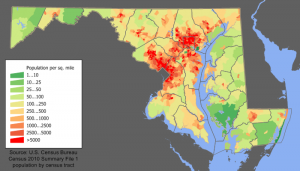The NPG Journal: Vol. 8, No. 2
- NPG
- December 16, 2014
- NPG Journal
- 0 Comments
The NPG Journal: Vol. 8, No. 2
 WHAT DOES GLOBAL POPULATION GROWTH REALLY MEAN?
WHAT DOES GLOBAL POPULATION GROWTH REALLY MEAN?
A recent paper published by Science Magazine titled “World population stabilization unlikely this century” has put a new spotlight on global population growth. The paper’s panel of expert authors concluded: “There is an 80% probability that world population, now 7.2 billion people, will increase to between 9.6 billion and 12.3 billion in 2100.”
In the deluge of media coverage, an interesting article by Kevin Smead was published by Energy Digital on December 4. The article includes an informative graphic further explaining the population crisis, as well as the areas of everyday life that it affects. Some notable highlights from the article include:
- It took until about the year 1804 for the Earth to hit 1 billion people. Just two centuries later, the world’s population has exploded exponentially by more than another 6 billion people.
- By 2025, 1.8 billion people will be living in countries or regions with absolute water scarcity.
- The United States uses 1 million gallons of oil every 2 minutes.
- While population has exploded exponentially, unfortunately the resources on our planet are finite. The ecological term for this is “carrying capacity,” which is the maximum population that our environment and resources can sustain indefinitely.
- While technology has saved the human race time after time, we have not yet found ways to address many of the problems tied to overpopulation, consumption, changes to climate, inequality, and scarcity of resources.
Perhaps most notable is the graphic’s simple statement: “And this is just the beginning.” These alarming realities hold true for U.S. population growth as well as the world. NPG encourages all concerned Americans to stand together – we must advocate for national policies which work to slow, halt, and eventually reverse U.S. population growth. For more information on NPG’s proposed population policies, see our 10 Principles for a Responsible U.S. Population Policy.
 THE PLIGHT OF THE CHESAPEAKE BAY CONTINUES
THE PLIGHT OF THE CHESAPEAKE BAY CONTINUES
He explains: “For the record, the population in the watershed has more than doubled from the 8 million people here when the Bay was healthier in the 1950s. It is expected to triple in the next several decades… The 17-plus million already living in the watershed already need to reduce their environmental impacts by a large and expansive measure to avoid ruining this national treasure, the Chesapeake. And it’s not clear, after decades of trying, that we can do this. So is it responsible to keep adding more pressure?”
Horton’s discussion of the negative consequences of population growth on the Chesapeake Bay serves as a window to the rest of the United States. Using simple examples of the costs of growth on the environment, economy, and infrastructure, Horton notes: “And to what ends do we pursue all that growth? What do the millions already here get from it? Do they get better, or just bigger? We ask questions like those about as much as we question gravity.” He rightly concludes: “Growth needs a better look.”
 BRITAIN’S RECENT POPULATION GROWTH: ‘ALMOST ENTIRELY’ DUE TO IMMIGRATION
BRITAIN’S RECENT POPULATION GROWTH: ‘ALMOST ENTIRELY’ DUE TO IMMIGRATION
A recent article in Breitbart News reports that: “A new study has cast doubt on the government’s official immigration figures, claiming that a higher than previously thought 84% of [Britain’s] population growth this century so far has been caused by migration, and that figure could rise to 100% in 25 years.” Sound familiar?
The new figures are the work of the think-tank MigrationWatch UK, whose report explains: “While official figures place population growth due to migration at an already high 57%, this ‘underestimates the demographic power of migration,’ and that many of the children being born to this country are to immigrant parents. Once this is factored in, the figure rises to 84% – meaning only a small fraction of population growth in the UK is down to long settled families.”
The report continues: “Indeed, the findings explain the unprecedented population explosion this century which has come despite a plummeting fertility rate for British families, as women put off having children for professional reasons.” Sir Andrew Green, who heads MigrationWatch UK, noted: “This [population growth due to immigration] would place enormous stress on our already creaking infrastructure and on our environment. And it would also change the nature of British society forever.”
This eye-opening article could easily be altered for the current situation in the United States. According to Breitbart, Britain’s net migration is thought to be running at close to quarter of a million admissions a year. The U.S. accepts over 4 times as many legal immigrants annually – and nearly twice as many are thought to enter our nation illegally each year.
NPG advocates the position of James Brokenshire, Britain’s immigration and security minister, who noted: “Uncontrolled, mass immigration… makes it difficult to maintain social cohesion, puts pressure on public services and forces down wages. That’s why our focus remains on controlling migration at sustainable levels.”

“The major problems in the world are the result in the difference between how nature works and the way people think.”
– Gregory Bateson
“If you really think the environment is less important than the economy, try holding your breath while you count your money.”
– Guy McPherson
“It’s ironic: We have all of these environmental agencies, from the federal Environmental Protection Agency on down, to restrict pollution – while the growth that drives it is actively sought by every level of government.”
– Tom Horton
NOTICE! THE NPG JOURNAL HAS A NEW SCHEDULE
There is little question that population and immigration issues are gaining more prominence in national debate. In an effort to keep you as up-to-date as possible on stories related to these topics – which are at the heart of the NPG mission – we are expanding the NPG Journal schedule to weekly email distributions. Sincerely,
Craig Lewis
Executive Vice President, NPG
- EARTH DAY 2024 - April 15, 2024
- We owe it to future generations… - April 13, 2024
- New NPG Forum Paper Explores the Role of Migrant Labor in US Agriculture - April 11, 2024
